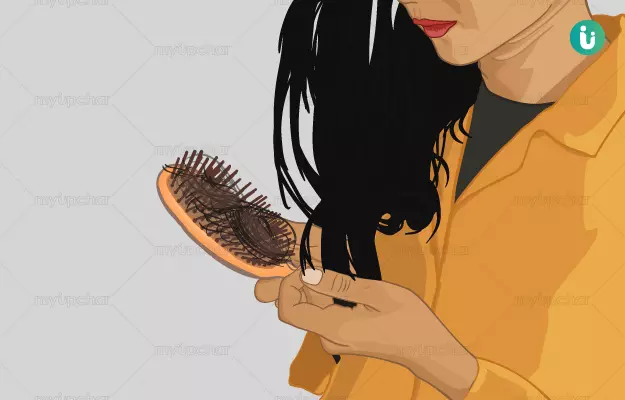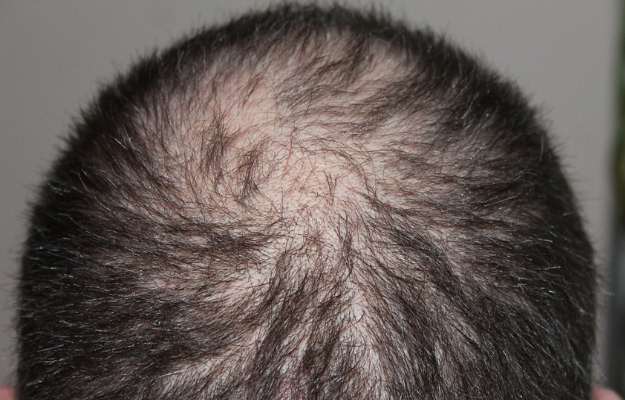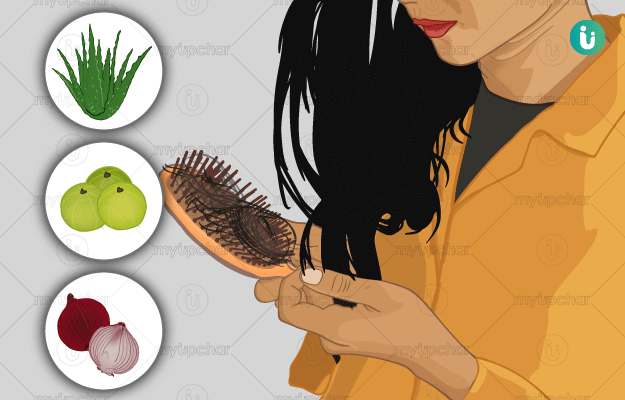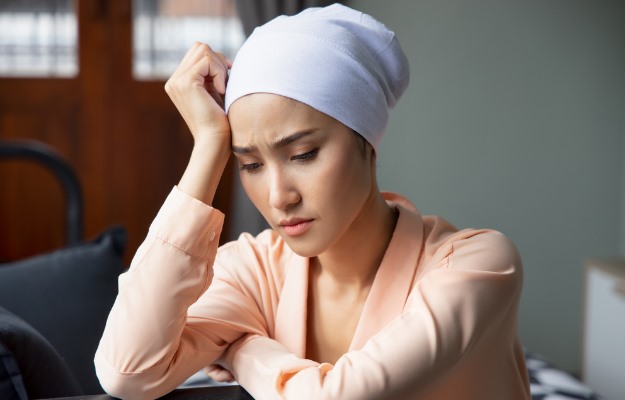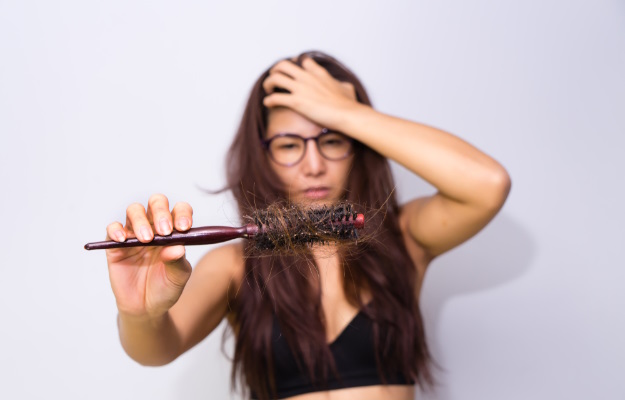We all love our dear hair. And folks who take their hair nonchalantly, as something that’ll stay there for eternity, find themselves rocked as their hair begin to bid adieu to them. Panic sets in and they haphazardly begin finding ways to fix them.
There are a host of hairstyles which people want to try on themselves and a plethora of hair care products in the market which vouch to give your hair the perfect shine, smoothness, bounce and much more. All of this becomes superfluous when your hair starts to fall.
On average, a person loses 50 to 100 hairs every day. However, this is a normal cycle that our hair goes through; new hair grows in place of old ones eventually. As long as there is no thinning of hair, formation of scar tissue or emergence of bald patches, you aren’t likely suffering from any major hair disorder.
Though excessive hair fall may be a sign of a health condition. Millions of people face the problem of hair loss. While some hair loss problems subside over time without the need for treatment, some need serious treatment to restore their normal state and some are not treatable at all.
Regardless of the type of hair loss, diet is one of the most important factors that determines the rate of regrowth and maintenance of the health of your hair follicles. And as crazy as it sounds, it might as well be a reason why a person is losing hair.
But before we discuss the link between hair fall and diet, let’s quickly take a look at the other causes of hair loss.
- Heredity (androgenetic alopecia): Most common cause of hair loss in both men and women as they age. Men form a receding hairline; women see thinning of hair.
- Medications: Certain drugs prescribed for depression, high blood pressure, arthritis, cancer cause side effects, which result in hair fall.
- Hormonal: Hormonal changes that take place during pregnancy, childbirth, menopause can cause hair loss.
- Medical Condition (alopecia areata): Characterised by the appearance of circular bald patches on the scalp and other areas of the body.
- Tension and Stress: High levels of stress or emotional setback can also cause a temporary bout of hair loss
- Treatment of Hair: Hairstyles like pigtails or cornrows can cause loss of hair as well. Certain hair treatments can lead to inflammation of hair follicles, resulting in hair loss.
Hair Fall and Diet
As said earlier, our diet plays a vital role in determining hair growth and health of your hair follicles. Though there haven’t been any strong studies to back up the efficacy of nutritional supplements on hair fall disorders, the effect of a proper diet on the health and nourishment of hair cannot be ignored altogether.
As hair don’t fall in the category of vital parts or organs, our body tends to overlook their nutritional requirement. In some cases, the sole reason behind hair fall can be attributed to a deficiency or excess of minerals and vitamins such as iron, zinc, vitamin B3, vitamin A, vitamin D, and vitamin E in diet.
A diet well-balanced diet in proteins, complex carbohydrates, vitamins, minerals, and iron will provide the hair cells with their requisite nourishment, ensuring proper growth and preventing excessive hair fall.
Here is a breakdown of how individual nutrients affect your hair and how to mitigate the risk of hair fall.
Protein
Hair strands are composed of protein fibre. They require a proper supply of protein to grow. Lack of protein causes your hair to become brittle and prone to damage and hair fall.
So, it is important to include ample amounts of protein in your diet to provide much-needed nutrition to your hair follicles and promote healthier and stronger hair growth.
Animal products like meat, fish, egg, lean meat are some of the best dietary protein sources. However, if you are a vegetarian you can opt for plant-based protein sources like quinoa, lentils, tofu, peanut butter, coconut, chickpeas, white beans, and whey.
Complex Carbohydrates
Hair cells are the fastest-growing cells in our body but since it is not an indispensable tissue, its needs are compromised within situations of nutrition imbalances. Thus, intake of the required amount of carbohydrates is critical as they supply energy to the hair cells, which they need a lot in order to grow. Being the metabolic currency, carbohydrates help convert proteins into the cells which form our hair.
Consume whole grains instead of simple carbohydrates as they give you energy for longer periods than simple carbohydrates. Whole wheat bread, pasta, flour, brown and wild rice, barley, quinoa, potatoes, corn, black beans, chickpeas are good sources of complex carbohydrates.
Iron
Iron is one of the most vital minerals for the health of your hair. Since women are more likely to suffer from the deficiency of iron than men, they are also more prone to hair fall.
Diminishing levels of iron in body impact hair follicle cells and block them from making new cells, which manifests in the form of suppressed hair growth and damaged hair.
People suffering from anaemia also face the problem of hair fall as it happens due to a diet which lacks in iron-rich foods, or at times, due to the body’s inability to absorb iron.
For non-vegetarians, red meat and fish are an excellent source of iron. As for vegetarians and vegans, beets, spinach, broccoli, dried apricots, prunes, pulses, almonds, soybeans can be consumed to replenish their iron reserves. However, absorption of iron from plant sources is rather difficult, so it is advisable to take an iron supplement if your iron levels are low. Make sure you check in with a doctor instead of popping any pills on your own.
Vitamin B12
Hair follicles, located just beneath our skin, need proper supply of blood to carry oxygen and nutrients important for hair growth. B12 helps in the production of red blood cells or RBCs which are responsible for oxygen and nutrient transport through the body. Thus, this vitamin is critical for hair growth.
Milk and eggs are two of the best sources of vitamin B12. Vegans can consume soy milk and cereals fortified with B12. You can also take B12 supplements.
Biotin
Loss of hair colour and hair loss have been associated with a deficiency of biotin, also known as vitamin H. Biotin maintains the structure of keratin, which is a protein that our hair, skin, and nails are made up of. Since it can’t be produced by our body, it is important to take biotin through diet. However, it is advisable to consume biotin through natural sources rather than opting for supplements. Some dietary sources of biotin include egg yolks, liver, cauliflower, yeast, pork, salmon, nuts, beans, mushrooms, avocados, bananas.
(Read more: Natural remedies for hair loss)


